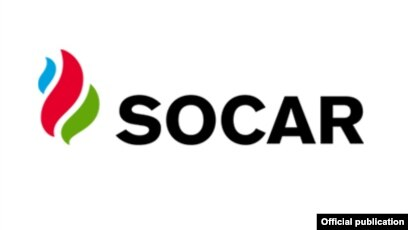SOCAR is not alarmed by EU sanctions against the STAR refinery
- Obyektiv Media
- Sep 6, 2025
- 2 min read

The European market's share in the supply of petroleum products from the Turkish STAR refinery, controlled by the state company SOCAR, is no more than 10-15 percent. Therefore, the statement by Anitta Hipper, official representative of the European Union's External Action Service, about introducing restrictions on the import of the plant's products to Europe as part of a new sanctions package will not have a significant impact on its operations: 85-90 percent of STAR's petroleum products are sold within Turkey. This was reported by haqqin.az, citing a "SOCAR representative familiar with the situation."
The EU decision, adopted in July 2025 as part of the 18th sanctions package, specifies that the import of petroleum products made from Russian oil in third countries will be banned in Europe. Brussels emphasizes that this measure is aimed at preventing Russian oil from entering the EU market, even in a refined form, and is part of a strategy to weaken the Russian economy and limit its ability to finance the war in Ukraine.
The document directly prohibits the purchase, import, and transfer of petroleum products derived from Russian oil to the European Union, as well as the provision of technical and financial assistance for these operations. At the same time, a list of partner countries subject to similar measures has been approved.
Since its launch in 2018, the STAR refinery has processed Russian Urals crude oil alongside Iraqi Basra, as well as Kazakh, Norwegian, and other grades. The main products of the enterprise are diesel fuel, jet fuel, and reformate, with diesel—for which predominantly heavy oil, including Urals, is used—accounting for about 60 percent of the production basket. Light Azeri crude was processed at the refinery very rarely, as it is priced on the market at or even above Brent crude.
According to haqqin.az sources, STAR has a contract with Litasco, the international trading arm of Russia's Lukoil, until at least 2027. Under this agreement, the plant periodically purchases Urals with a discount. In 2023, SOCAR and Lukoil concluded a $1.5 billion credit agreement providing for Litasco to supply oil to STAR from various Lukoil fields via Baltic Sea ports, including Primorsk. This scheme is also planned to last until 2027.
In July 2025, as part of the new sanctions package, a warning was issued to certain Azerbaijani tankers regarding the loading of Russian oil at Primorsk and its delivery to a number of refineries, including STAR. SOCAR and ASCO (Azerbaijan Shipping Company) reported that they are carefully studying the situation and its possible consequences.
Since late 2023, Urals supplies to STAR have been regular, based on the refinery's requests. Chartered tankers from SA Maritime AFEZCO with a deadweight of up to 120,000 tons were periodically used for transportation.
Thus, although the new EU sanctions do create additional risks for STAR's export component, the main part of the plant's products is oriented toward the domestic Turkish market, which significantly reduces the enterprise's sensitivity to the introduced restrictions, haqqin.az claims.
In this situation, the main uncertainty remains the question of how long the supply of Russian oil will continue under increasing EU sanctions pressure.


Comments